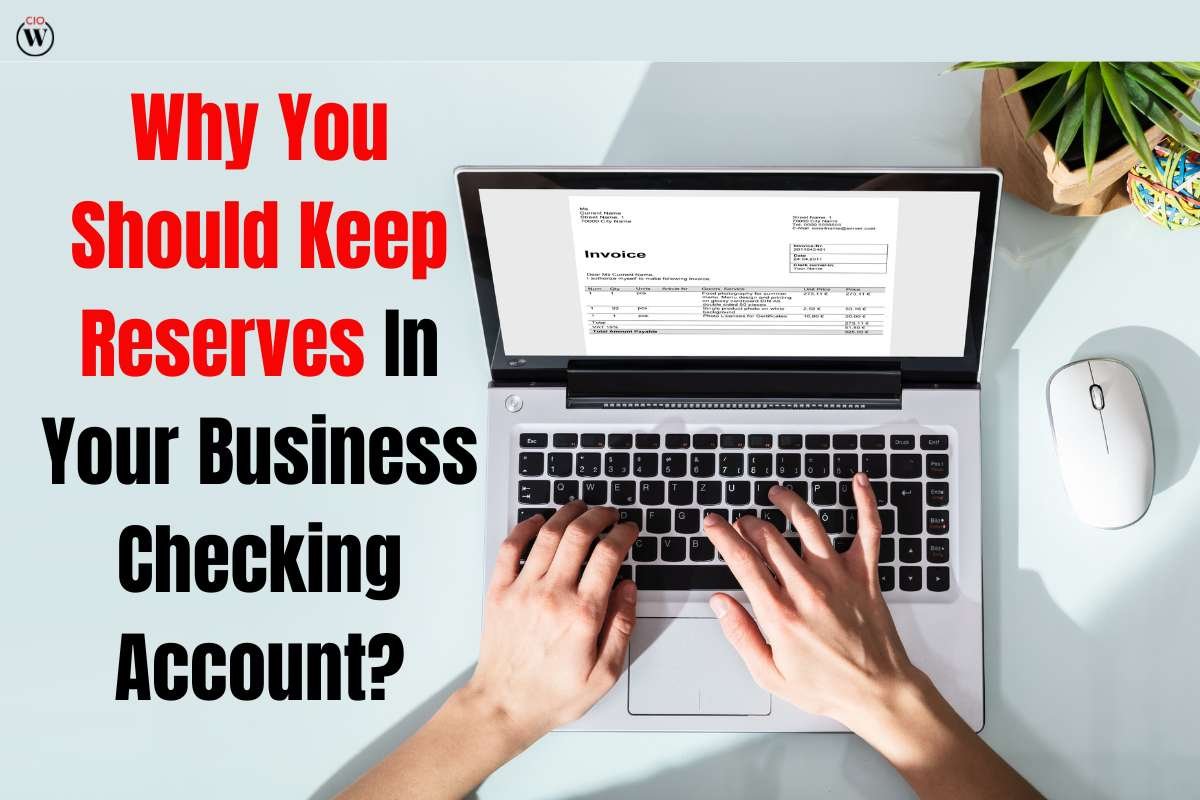Keeping reserves in your business checking account is an important practice that can help protect your business and ensure its financial stability. Reserves refer to funds that are set aside specifically for unexpected expenses or emergencies. In this article, we will explore the reasons why you should keep reserves in your business checking account and how to determine the appropriate amount to set aside.
Here is Why You Should Keep Reserves In Your Business Checking Account;
1. Protecting Against Unexpected Expenses
As a business owner, you know that unexpected expenses can arise at any time. For example, your equipment may break down, your website may need to be redesigned, or you may need to repair your office space. Having reserves in your business checking account can help you cover these unexpected expenses without having to dip into your regular operating funds.
2. Providing a Cushion During Slow Periods
Even the most successful businesses may experience slow periods where revenue decreases. Having reserves in your business checking account can help you cover your expenses during these slow periods without having to resort to borrowing money or taking out a loan. This can help you avoid financial stress and maintain your business’s financial stability.
3. Preparing for Emergencies
In addition to unexpected expenses, emergencies can also occur that can disrupt your business operations. For example, a natural disaster such as a hurricane or flood can damage your business property and disrupt your operations. Having reserves in your business checking account can help you cover expenses related to these emergencies, such as repairs or temporary relocation costs.
4. Meeting Financial Obligations

As a business owner, you have financial obligations that need to be met on a regular basis. For example, you may have payroll expenses, rent or mortgage payments, or taxes to pay. Keeping reserves in your business checking account can help ensure that you have enough funds to meet these obligations, even if revenue decreases or unexpected expenses arise.
5. Building Creditworthiness
Having reserves in your business checking account can also help you build creditworthiness. Lenders and financial institutions look at your business’s financial stability and cash flow when making lending decisions. Having reserves in your business checking account can demonstrate to lenders that you have a stable financial situation and are prepared for unexpected expenses or emergencies.
6. Determining the Number of Reserves to Keep
Now that we have discussed the reasons why you should keep reserves in your business checking account, let’s explore how to determine the appropriate amount to set aside.
7. Analyze Your Expenses
The first step in determining the amount of reserves to keep is to analyze your business expenses. Look at your financial statements and identify your fixed and variable expenses. Fixed expenses are those that do not change from month to month, such as rent or mortgage payments. Variable expenses are those that fluctuate based on your business operations, such as inventory costs or marketing expenses.
8. Determine Your Business’s Risk Factors

Next, consider the risk factors that may affect your business. For example, if you operate a seasonal business, you may experience slow periods during certain times of the year. If your business relies heavily on a particular supplier or customer, you may be at risk if that supplier or customer experiences financial difficulties. Understanding your business’s risk factors can help you determine the appropriate amount of reserves to keep.
9. Calculate Your Cash Flow
Cash flow refers to the amount of money that is coming into and going out of your business on a regular basis. To determine the appropriate amount of reserves to keep, you need to calculate your cash flow. This can be done by subtracting your expenses from your revenue on a regular basis, such as monthly or quarterly.
10. Set a Target Amount
Based on your analysis of your expenses, risk factors, and cash flow, set a target amount for your reserves. This amount should be sufficient to cover unexpected expenses or emergencies, provide a cushion during slow periods, and meet your financial obligations.
11. Regularly Reevaluate Your Reserves

It is important to regularly reevaluate your reserves and adjust the amount as needed. As your business grows and changes, your financial situation may also change. For example, if you experience a significant increase in revenue, you may be able to reduce the amount of reserves you keep. On the other hand, if you take on additional expenses or risk factors, you may need to increase your reserves.
12. Keep Your Reserves Separate
It is important to keep your reserves separate from your regular operating funds. This can help ensure that you do not accidentally dip into your reserves for regular expenses. You may want to consider opening a separate savings account specifically for your reserves.
13. Use Your Reserves Wisely
Finally, it is important to use your reserves wisely. They should be reserved for unexpected expenses or emergencies, not for regular operating expenses or investments. If you do need to use your reserves, make sure to replenish them as soon as possible.
BOTTOM LINE
Keeping reserves in your business checking account is an important practice that can help protect your business and ensure its financial stability. Reserves can help you cover unexpected expenses, provide a cushion during slow periods, prepare for emergencies, meet financial obligations, and build creditworthiness.
When determining the appropriate amount of reserves to keep, it is important to analyze your expenses, consider your risk factors, calculate your cash flow, set a target amount, and regularly reevaluate your reserves. By keeping your reserves separate and using them wisely, you can help ensure your business’s financial success.
Also read: How To Help Your Business Grow Through Effective Cash Flow Management?









